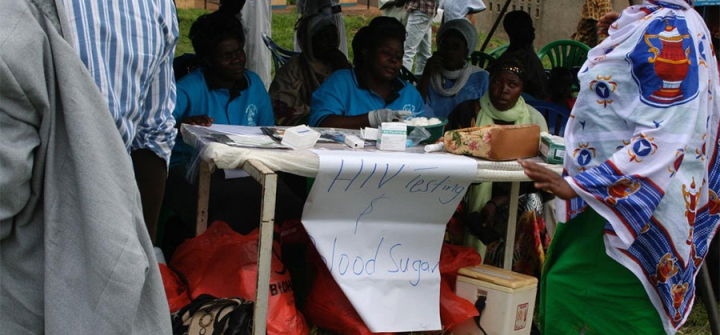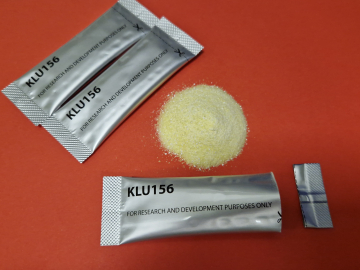Cutting Foreign Aid Now Would Be a Bad Move
As high school students in St. Louis, Missouri, we reaped the benefits of global health security every time we sat in classrooms with our friends.
Now that sense of safety has evaporated, and students everywhere are living the consequences of inadequate health policies. Yet some politicians still refuse to see the value in foreign aid to build global health security.
For several years, we’ve worked with members of the US Congress to boost support to low- and middle-income countries, for better nutrition, tuberculosis treatments, epidemics response, and vaccines. Yet, with the COVID-19 pandemic, there has never been a moment quite like this in our lifetimes. How do we push ahead with global health efforts, in the face of a pandemic exploding in our own country?
Even before COVID-19, investing in LMICs was a hard sell. In meetings with lawmakers, we’ve received our share of disbelief: “Wait, tuberculosis is still around?” “But this isn’t in our district, right?” At the same time, some great allies on the House and Senate floors helped ensure that the US contribution to the Global Fund to Fight AIDS, TB, and Malaria received a 16% boost last year instead of President Trump’s proposed 29% cut.
Now, with the pandemic all over the news, we don’t need to convince donors and policymakers that threats still exist. The new challenge is convincing panicked authority figures tempted to cut foreign aid why that would be a bad move.
The pandemic is already being used as an excuse for open racism and to close borders, ban immigration, and kill foreign aid. Amid the pandemic’s economic upheaval, politicians argue that we cannot afford to “drain” our money out to foreign nations. But COVID-19 is not an excuse to close ourselves off. The pandemic makes it clear that no corner of the world is safe if infectious diseases are uncontrolled in any part of the world, and there is simply no way to isolate any country or region. We are all in this together, as global citizens.
Furthermore, tuberculosis, HIV/AIDS, malaria, and vaccine-preventable diseases like measles don’t take a vacation while COVID-19 is here. We’re still losing 4,000 people every day to TB, and the global health community is in damage-control mode as resources and political focus is redirected towards coronavirus.
Previously, the US government recognized the power of foreign aid, and invested in averting health catastrophes. The international community rallied at the Global Fund 2019 pledging conference, putting the world on track to save 16 million lives by 2023.
We’ve seen the benefits of global health mitigation and prevention efforts, such as The Global Fund’s efforts to save over 32 million lives since 2002, and Gavi, the Vaccine Alliance’s work vaccinating almost half the world’s children against deadly infectious diseases. Their work is even more important in light of coronavirus, as they protect compromised patients already affected by illnesses like malaria or measles. This is no time to withhold support for the most effective worldwide interventions.
It’s an understandable instinct to prioritize people within our own borders, especially since COVID-19 is pushing countries into an economic recession. We cannot adequately respond to this pandemic, however, unless we also invest in global health. Gavi’s replenishment conference is scheduled for June 3, and we urge every country to make a bold, multi-year pledge for the vaccine alliance. As Yuval Noah Harari says, the COVID-19 pandemic will end, but it will leave us with a choice: between nationalist isolation and global solidarity.
We genuinely hope humanity will lean towards the latter.
Yara Changyit-Levin is a co-leader of the RESULTS St. Louis global poverty group. She is the author of teenadvocates.blogspot.com and serves as advocacy lead for her local UNICEF club.
Arushi Katyal is a member of the RESULTS St. Louis global poverty group.
Sri Jaladi is the media coordinator of the RESULTS St. Louis global poverty group.
For the latest, most reliable COVID-19 insights from some of the world’s most respected global health experts, see Global Health NOW’s COVID-19 Expert Reality Check.
Join the tens of thousands of subscribers who rely on Global Health NOW summaries and exclusive articles for the latest public health news. Sign up for our free weekday newsletter, and please share the link with friends and colleagues: https://www.globalhealthnow.org/subscribe
Thanks to development assistance to Uganda’s national response, HIV prevalence in Uganda dropped from 7.3% to 6% between 2011 and 2016. Image: Cynthia Changyit Levin




